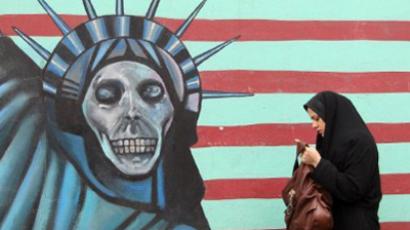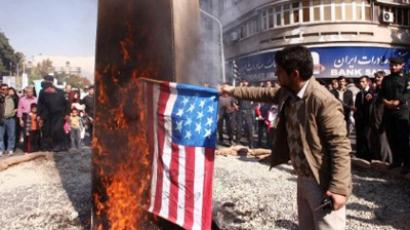‘Oil exporters to gain if conflict in Persian Gulf’
While Washington and Iran continue to shake their fists at each other in the Persian Gulf, oil exporters may come out of the crisis with a new, high benchmark in oil prices, says author and journalist Patrick Henningsen.
Iran is playing a defensive position in threatening to block the Strait of Hormuz and thus choke off the global oil exports from the Gulf, says Patrick Henningsen from Infowars.com. But while experts agree that for Iran – whose budget is mainly built on crude exports – and the oil-dependent US an all-out conflict in the Persian Gulf would be a lose-lose situation, there are definite gains for the oil industry.“You have oil producers and oil retailers: Saudi Arabia and other Gulf States – and also UNICO, Exxon, British Petroleum, companies which actually take and deliver oil from the Arab States. If this goes to blows with Iran, it will mean a spike in the price of oil. The oil companies are drooling at the prospect of setting a new oil benchmark of around $120 a barrel,” Henningsen told RT. “This is good news for Saudi Arabia, because it is making money overnight,” adds the journalist. “And it is good news for the oil companies. Even if this conflict calms down, they will maintain the profile of the pump at a much higher level in proportion to what it should be.”














